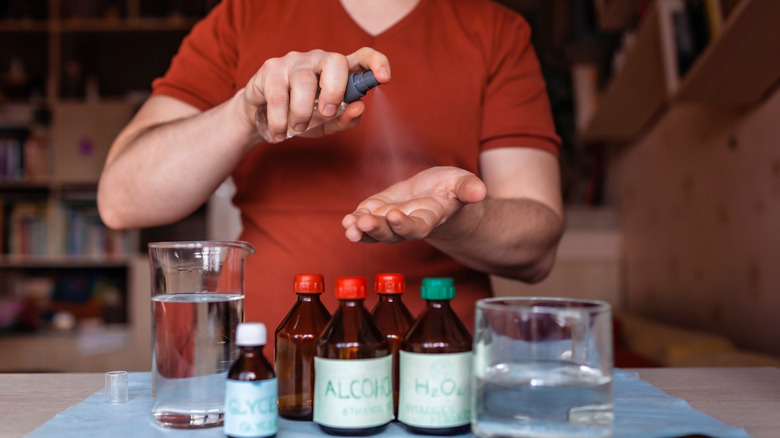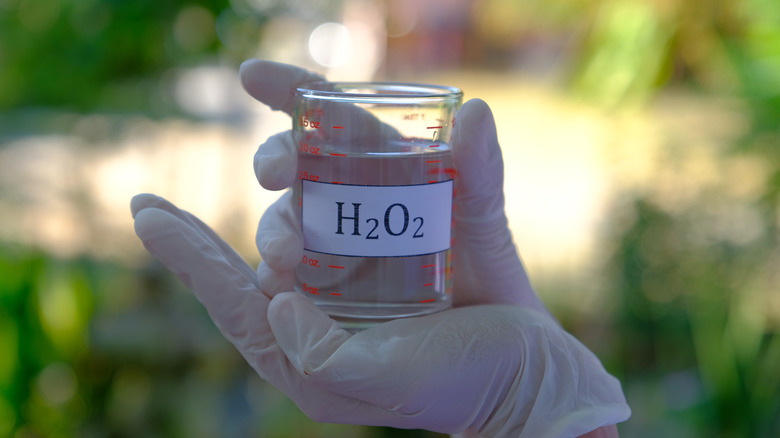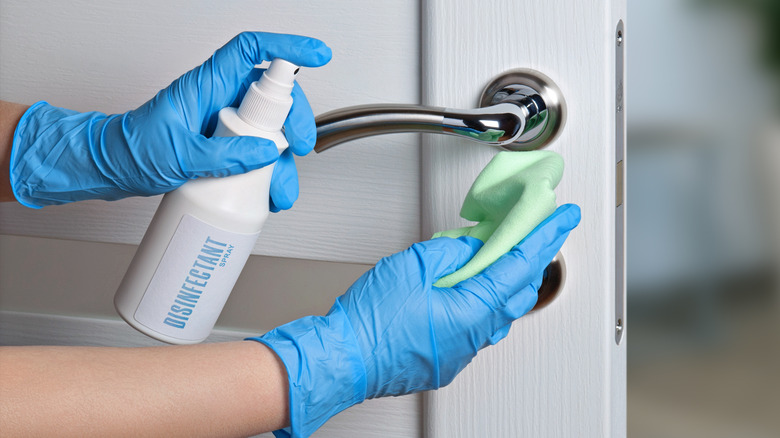Hydrogen Peroxide Vs Rubbing Alcohol: Which Is Better For Cleaning?
When it comes to household cleaning and disinfection, two stalwarts have solidified their status as go-to choices: hydrogen peroxide and rubbing alcohol. These versatile solutions have become indispensable in homes and healthcare settings due to their remarkable efficacy in combatting germs, bacteria, and viruses. Hydrogen peroxide, recognizable by its signature brown bottles designed to protect it from light and heat, and isopropyl alcohol or ethanol-based liquid antiseptic rubbing alcohol each bring a unique set of characteristics to the cleaning battlefield. As we embark on this exploration of their cleaning capabilities, the goal is to unravel the subtleties that distinguish them and ultimately determine which one claims the crown of the ultimate cleaner. But here's (more than) a hint: It's hydrogen peroxide. Wonder why?
The popularity of these agents stems not only from their effectiveness but also from their accessibility. Hydrogen peroxide, a mild antiseptic, has been a must-have in medicine cabinets for decades. Rubbing alcohol, with its rapid evaporation and disinfecting properties, has found a place in first aid kits and cleaning supplies. As we navigate the nuances of these cleaning titans, it becomes evident that their widespread use is a testament to their reliability. Join us on this journey of scrutiny as we delve into the specifics of hydrogen peroxide and rubbing alcohol, unraveling the science behind their effectiveness and determining why hydrogen peroxide emerges as the superior surface cleaning agent.
Hydrogen peroxide powers unveiled
Represented by its chemical formula H2O2, hydrogen peroxide reveals itself to be an outstanding contender in the realm of cleaning. Its effervescent nature, depicted by the bubbling action you observe when it comes into contact with an open wound, visually underscores its active cleaning properties.
Beyond its visually satisfying traits, hydrogen peroxide exhibits an impressive broad-spectrum efficacy against an array of pathogens. It's a microbial assassin, targeting viruses, bacteria, and fungi with precision. According to the Journal of Pure and Applied Microbiology, notable adversaries it tackles include E.coli and Staphylococcus aureus. Besides these, studies published by Acta Virol (via the Center for Disease Control) and the Journal of Virological Methods have shown that hydrogen peroxide is capable of inactivating the common cold-causing rhinovirus and influenza virus respectively.
What elevates hydrogen peroxide further is its versatility. From deep cleaning ovens to disinfecting kitchen surfaces and dehumidifiers, and combatting bathroom grime, its efficacy transcends conventional boundaries. Moreover, its eco-friendly disposition, breaking down into water and oxygen, ensures a residue-free clean. As we unravel the multifaceted nature of hydrogen peroxide, it becomes apparent that this chemical juggernaut is not just an effective all-around cleaner in your home but also a defender against a myriad of microbial threats.
Rubbing alcohol's cleaning attributes
Even with the strong influence of hydrogen peroxide in the cleaning arena, rubbing alcohol emerges as a robust contender, armed with its own set of merits. Recognized for its cooling action and rapid evaporation, it proves to be the go-to solution for cleaning electronic devices, leaving surfaces not just clean but also dry and devoid of residue.
At a concentration of at least 70%, rubbing alcohol efficiently sanitizes surfaces and excels at dissolving oils, making it indispensable for tackling greasy kitchen messes. However, its germicidal spectrum is notably narrower compared to the comprehensive reach of hydrogen peroxide. Healthline also states that while rubbing alcohol is proficient against bacteria like Salmonella and Staphylococcus, when purchased in its common 3% formulation, it may not wield the same efficacy against certain viruses and fungi.
The ongoing clash between hydrogen peroxide and rubbing alcohol hinges on the specifics of the cleaning task at hand. Both are winners in their own way, yet hydrogen peroxide's wider applicability, coupled with its environmentally friendly profile, may tip the scales in its favor. As with any cleaning agent, use hydrogen peroxide and rubbing alcohol with care and always follow instructions on their labels for safety.


